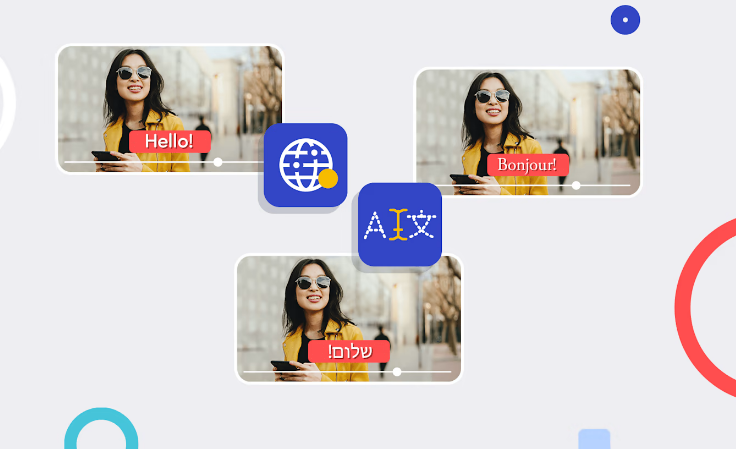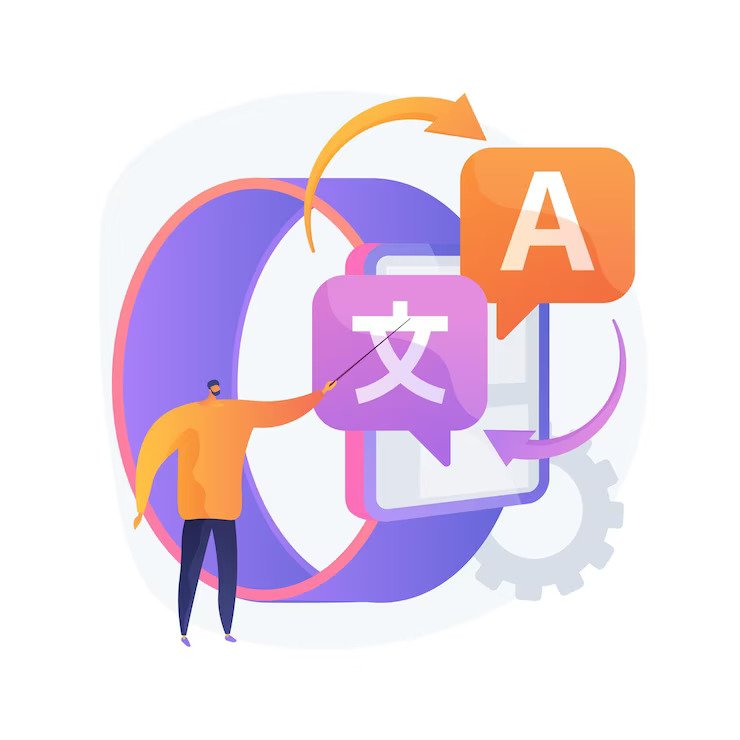How The Facebook Algorithm Works: The Four-Step Ranking Process
Barsha Bhattacharya, 3 days ago

Barsha Bhattacharya, 4 days ago

Shahnawaz, 5 days ago

Barsha Bhattacharya, 1 week ago


In today’s digital age, video content has become a dominant and captivating medium for communication, reaching audiences worldwide.
However, to truly engage a diverse international audience, content creators must overcome language barriers. Video translation has emerged as a powerful solution to break down these barriers and create compelling content that resonates with viewers from different linguistic backgrounds.
In this article, we will explore the significance of video translation, particularly its role in reaching global audiences and the importance of catering to specific language preferences, including Arabic.
With increasing interconnectivity, video content has revolutionized the way we consume information and entertainment. From social media platforms to streaming services, video has become a preferred and influential medium for storytelling, learning, marketing, and more. The visual and auditory elements of videos provide a dynamic and engaging experience that captivates audiences and leaves a lasting impression.
However, in an effort to expand their reach and connect with diverse audiences, content creators face the challenge of language diversity. For example, a video created in English may not resonate with non-English-speaking viewers, limiting its potential impact on a global scale. This is where video translation, such as “English to Arabic video translation” plays a key role in ensuring that interesting content reaches audiences around the world.
Video translation involves rendering spoken or written content from one language into another, allowing viewers to understand and engage with the video in their native language. This transformative process enables content creators to bridge linguistic gaps and unlock new opportunities for global engagement.
Emphasizing the importance of catering to specific language preferences, such as Arabic, is essential. Arabic is spoken by millions of people around the world, and translating videos into Arabic can significantly extend the reach of captivating content to a vast and diverse audience, spanning regions in the Middle East and North Africa, among others.

Beyond merely breaking down language barriers, video translation enhances cultural relevance, making the content more relatable and meaningful to diverse audiences. Cultural nuances, idiomatic expressions, and references specific to a particular region are better preserved through video translation, ensuring that the message resonates with viewers on a deeper level.
For example, when videos are translated into Arabic, it is crucial to convey cultural references and context accurately. This enables Arab viewers to connect more profoundly with the content, fostering a sense of belonging and inclusivity. Understanding the cultural sensibilities of the target audience is vital for content creators aiming to build a loyal and engaged international following.
In the competitive world of marketing and brand promotion, captivating content is pivotal to capturing the attention of potential customers. Video marketing campaigns that undergo translation can significantly expand their target audience and improve brand recognition in regions where other languages are spoken, including Arabic-speaking regions.
Localization of marketing videos through video translation ensures that promotional content aligns with the cultural preferences and values of the target audience. This approach makes the content more appealing and relatable, increasing the likelihood of attracting new customers and building a loyal customer base.
As the demand for video translation grows, advancements in technology have accelerated the translation process, making it more efficient and cost-effective. AI-powered translation tools have emerged as game-changers in the field of video translation, streamlining the workflow and improving translation quality.
AI-driven video translation, including Arabic, employs sophisticated algorithms and neural machine learning models trained on vast multilingual datasets. This enables the system to understand linguistic nuances, context, and cultural references, resulting in more accurate and contextually relevant translations.
Additionally, AI-powered video translation offers real-time capabilities, enabling content creators to provide on-the-fly translations for live events, webinars, and virtual conferences. This real-time accessibility enhances the user experience and ensures that language barriers do not hinder participants from engaging with the content.
For content creators aiming to optimize their search engine rankings and increase global reach, video translation can be a game-changer. Translating video titles, descriptions, and subtitles into multiple languages, including Arabic, allows content to be discovered by a wider audience in different regions.
With the right keywords and SEO strategies in each language, videos have a higher chance of appearing in relevant search results, leading to increased viewership and engagement. This optimization enhances the content’s discoverability and extends its influence across various regions.
In the ever-evolving digital landscape, video translation has become an essential tool for content creators seeking to engage global audiences. By breaking down language barriers and enhancing cultural relevance, video translation, including Arabic translation, opens doors to new opportunities for content creators in education, marketing, entertainment, and beyond.
Advancements in AI-driven video translation further accelerate the process, making it more efficient and cost-effective while maintaining high translation quality. As technology continues to evolve, the future of video translation promises even greater accessibility, inclusivity, and global connectivity, allowing captivating content to leave a lasting impression on diverse audiences worldwide. Content creators who embrace video translation as a transformative strategy will undoubtedly thrive in the competitive digital era, leaving a global impact with their compelling and engaging content.
Read Also:
Arnab Dey is a passionate blogger who loves to write on different niches like technologies, dating, finance, fashion, travel, and much more.